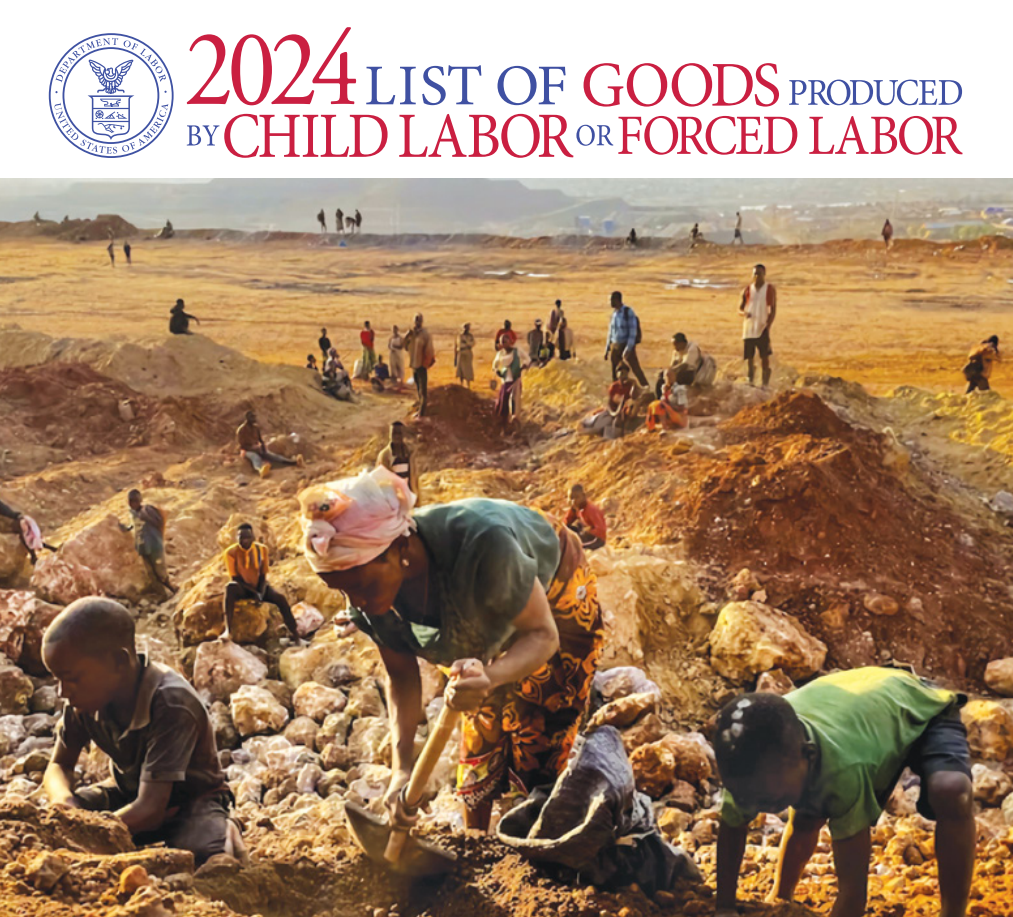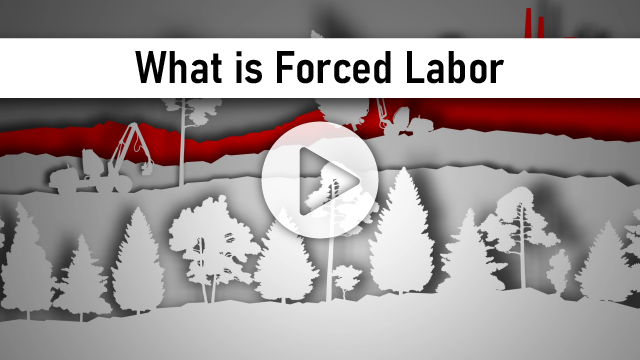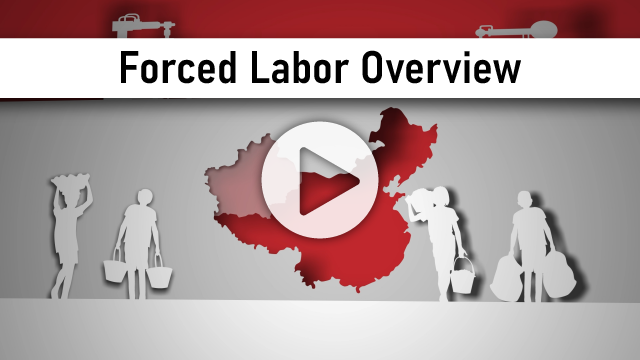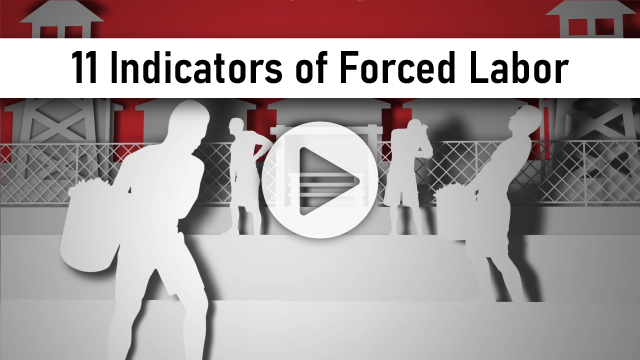
Workers in forced labor conditions need assistance from many stakeholders: governments, government-backed agencies, non-governmental organizations (NGOs), the private sector, and more. CBP is committed to playing its part by actively investigating allegations of forced labor and preventing products made with forced labor from entering the U.S. Anyone with an allegation of forced labor is encouraged to submit their allegation to CBP. Submitting allegations allows CBP to continue and enhance its enforcement efforts, improving living and labor conditions for workers around the world.
CBP Roles and Responsibilities
CBP is responsible for preventing the entry of products made with forced labor in the U.S. market by investigating and acting upon allegations of forced labor in supply chains.
11 Indicators of Forced Labor
The indicators listed below were developed by the International Labour Organization. They are intended to help front-line criminal law enforcement officials, inspectors, trade union officers, non-governmental organization (NGO) workers, and others to identify persons who are possibly trapped in a forced labor situation, and who may require urgent assistance. These indicators represent the most common signs that point to the possible existence of forced labor.
Submitting forced labor allegations

To submit information to CBP alleging merchandise was produced with forced labor, please use CBP’s e-Allegations Online Trade Violation Reporting System.
Helpful tips when submitting allegations

- Allegations may be reported anonymously OR they may include follow-up contact information (encouraged if possible).
- Allegations should provide specific, timely information about labor conditions and specific supply chain entities connected to the forced labor.
CBP's Impact at a Glance
$62 Million in Repayments
Over the last four years, multiple entities have taken corrective measures to remediate indicators of forced labor due to CBP’s aggressive enforcement actions. This has improved working and living conditions for thousands of workers, and led to the repayment of over $62 million in withheld wages and recruitment fees that trapped workers in debt bondage.
29 WROs and Findings Modified
Since 1993, CBP has modified 25 Withhold Release Orders (WROs) and four Findings, meaning entities remediated all 11 indicators of forced labor. This has allowed those entities to once again import goods into the U.S. and proves that CBP’s aggressive enforcement actions improve working and living conditions for workers.
List of Goods Produced by Child Labor or Forced Labor
The Bureau of International Labor Affairs (ILAB) maintains a list of goods and their source countries which it has reason to believe are produced by child labor or forced labor in violation of international standards, as required under the Trafficking Victims Protection Reauthorization Act (TVPRA) of 2005 and subsequent reauthorizations.







